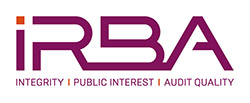The IRBA issues consultation paper on Mandatory Audit Firm Rotation
Johannesburg, Tuesday, October 25, 2016 - The public consultation process around the implementation of Mandatory Audit Firm Rotation (MAFR) has opened with the official release of the consultation paper on the requirement today (Tuesday, October 25). In August this year, the Independent Regulatory Board for Auditors (IRBA) announced its decision to implement mandatory audit firm rotation, in line with other jurisdictions worldwide, to strengthen auditor independence and enhance audit quality.
The consultation process was expected to be open until December 24, 2016 according to the timeline released in September, instead the IRBA has indicated it will run the process until January 20, 2017. It aims to issue the final requirements in March 2017.
In terms of its paper, the IRBA has outlined that MAFR is to occur every ten years for listed companies, effective for financial years commencing on or after 1 April 2023. There are transitional arrangements for companies with joint audits.
The requirement further provides for a cooling off period of five years for the outgoing audit firm before that firm may be eligible to be reappointed to audit the client’s financial statements.
Mandatory Audit Firm Rotation was recently implemented in the European Union, with all its member states being required to have put in place appropriate legislation by 17 June 2016. India is currently implementing MAFR and Mauritius announced in July that it would require listed entities to rotate auditors every seven years.
Says IRBA Chairman, Rene Kenosi: “While the Board must consider the impact of its decisions on entities and the profession, its ultimate responsibility is to protect the investing public, and to contribute to ensuring a reliable financial market which will generate confidence and promote investment and growth.
“The IRBA is committed to deliver on its statutory mandate, while recognising its responsibility to be responsive to its stakeholders. It is in this spirit that the Board appreciates comments and inputs on the new requirements to strengthen auditor independence.”
The consultation paper can be downloaded from our website on the Guidelines to Commentary page.





